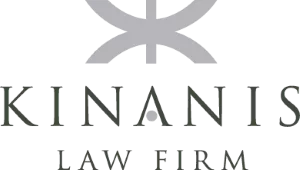A. INTRODUCTION
Initial Coin Offering, known as "ICO", is a relatively new phenomenon that has quickly become the main player in the Financial Services and Crowdfunding industries, as well as being the key subject of discussion in the Blockchain communities. In essence, it is one of the most advanced methods of raising finance from the public and is becoming increasingly popular to fundraise start-ups.
While all jurisdictions are shying away from regulating this industry, Malta has recently introduced a specific regulatory framework for ICOs and has become the first jurisdiction worldwide to regulate ICOs and Blockchain Technology.
This publication in fact seeks to give an overview of the recent laws and regulations relating to ICOs.
Information relating to any ancillary services to cryptocurrencies, including the operation of platforms to exchange such cryptocurrencies, portfolio management and providing investment advice amongst others, is discussed in our brochure: "Malta – Virtual Financial Asset Services – The New Legislation".
B. TO WHOM DOES THE NEW LAW APPLY?
The new legislation applies to anyone who will offer to the public Virtual Financial Asset(s) (VFA) as these are defined in the new legislation. Hence, if the asset that is offered to the public is not a VFA, the new legislation does not apply.
In order for a person to issue a VFA, the following must be met:
- A Whitepaper, must be drafted, which must be approved and registered at the Malta Financial Services Authority (MFSA);
- To have at all times a VFA Agent, duly authorised by the MFSA.
At this stage, it is crucial to point out that as of the time of the publication of this brochure, the new legislation and relevant rules of the MFSA are still in draft form.
C. DEFINITION OF VIRTUAL FINANCIAL ASSET (VFA)
By way of a definition, a VFA is any form of digital medium recordation that is used as a digital medium of exchange, unit of account, or store of value and that is not one of the following as defined below:
- Electronic Money;
- Financial Instrument; and
- Virtual Token.
Legal definitions of the above:
Electronic Money means electronically, including magnetically, stored monetary value as represented by a claim on the issuer which is issued on receipt of funds for the purpose of making payment transactions (as defined) and which is accepted by a natural or legal person other than the financial institutions that issued the electronic money.
Financial Instrument includes the following:
- Transferable securities, including shares and bonds;
- Money market instruments such as treasury bills and certificates of deposit;
- Units in a collective investment scheme;
- Options, futures, swaps and any other derivative contracts relating to securities, currencies interest rates, yields, commodities or those that are traded on a regulated market etc.;
- Derivative instruments for transfer of credit risk;
- Rights under a contract for difference;
- Instruments which confer property rights;
- Foreign exchange held for investment purposes; and
- Emission allowances under EU Emissions Trading Scheme.
Virtual Tokens have been defined as a form of digital medium recordation that:
- has no utility, value or application outside of the DLT platform on which it was issued; and
- may only be redeemed for funds on such platform directly by the issuer of such DLT asset.
Electronic money is excluded from this definition.
The MFSA is proposing a compulsory Financial Instrument Test in order to determine whether an asset is a Financial Instrument or not.
The process is a two-fold test, being:
- Does the VFA qualify as a Virtual Token as defined under the new laws? If it does, having in mind its restricted definition as per the new laws herein specified, then it is exempted under the new VFA Law and the licencing requirements do not apply.
- If it is not qualified as a Virtual Token, then one has to determine whether this qualifies as a Financial Instrument under MiFID (Section C, Annex 1) considering all the categories of Financial Instatements as identified above. If the answer is negative, then the asset is caught under the VFA Law and its licensing procedure must be followed.
In summary
If a cryptocurrency qualifies as a Virtual Token as defined in the new law and does not qualify as a Financial Instrument or Electronic Money, then it is exempted from the ambit of applicability of the new law and the licensing requirements are not needed for its issuing or trading.
D. ISSUING OF A VFA – REQUIREMENT OF A WHITEPAPER
The new law prescribes that a whitepaper which will be registered and in effect approved by MFSA is compulsory in order for an issuer to:
- Offer a VFA to the public in or from within Malta; or
- Apply for a VFA's admission on a Distributed Ledger Technology (DLT) Exchange.
Ten days before being circulated, the whitepaper has to be:
- Signed by every director of the issuer; and
- Signed by the duly appointed VFA agent; and
- Delivered to the MFSA, which shall register the whitepaper if it is satisfied that the requirements have been duly complied with.
Most importantly, the whitepaper shall have the contents specified in Annex I of this publication. Non-observance with any of such requirements will automatically disqualify the whitepaper from being registered / approved.
E. APPOINTMENT OF A VFA AGENT
An issuer of a VFA is required to appoint, and have at all times in place, a VFA agent who is duly registered with the MFSA. The VFA Agent must at all times remain independent from the issuer.
The roles of the VFA Agent shall include the following:
- Ensure that the issuer has satisfied all requirements of the laws;
- Ensure that the issuer is a fit and proper person to carry out the relevant activities;
- Advise the issuer on its responsibilities and obligations of the law;
- Submit all required documentation, information and explanations to the MFSA;
- Act as a liaison between the issuer and the MFSA in all matters in connection to the whitepaper or the trading of the issuer's VFA on a DLT exchange;
- Submit to the MFSA on behalf of the issuer an annual certificate of compliance;
- Provide a declaration of independence from the issuer to the MFSA.
To read this Report in full, please click here.
The content of this article is intended to provide a general guide to the subject matter. Specialist advice should be sought about your specific circumstances.




